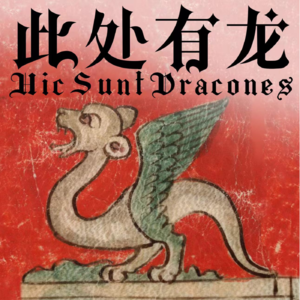



 12. 中世纪警世诗:Medieval Death Lyrics and Graduation Hymns
12. 中世纪警世诗:Medieval Death Lyrics and Graduation Hymns各位龙友久违了!传统上,2069年前的今天(公元前44年3月15日)是凯撒被刺之日(Idus Martiae),莎士比亚曾在《裘利亚·凯撒》(Julius Caesar)一剧中发出振聋发聩的提醒:“Beware the Ides of March!” 在这个几家欢喜几家愁的日子里(古罗马历中曾以这一天作为新年第一个满月,也即真正新年的开始),我们将一起来回顾中世纪文学和艺术中的“鄙夷尘世”(contemptus mundi)和“死亡预警”(memento mori)主题,哈哈哈哈哈哈哈!(死神的笑声) The Murder of Caesar by Karl von Piloty, 1865 本期节目诗歌: 中古英语短诗《当土壤成为你的塔楼》只有一份手稿存世(Trinity College, Cambridge, MS323, fol. 47v),编写于13世纪下半叶,今藏剑桥大学圣三一学院。本诗是中世纪英国及欧陆盛行的“死亡抒情诗”(death lyric)中一个精湛的典范。死亡及其不可避免性是存在于中世纪人的心灵后景和集体意识中最重要的事件,也深刻地影响了宗教仪式、节日历法、建筑空间、绘画雕刻的发展,渗透到日常生活的方方面面。本诗在形式上是一首准挽歌体,但挽歌的庄重句式和哀伤氛围又与“死后”或曰“尸检式”(post-mortem)的庸常细节形成对照,在短短六行内产生一种可怖的戏剧张力。 《虚空图》Vanitas, by Antonio de Pereda (1632-1636) Vanitas, by Jan Sanders van Hemessen (1550) 此诗虽短,却继承并发展了好几个贯穿古典时代晚期至中世纪盛晚期的核心文学主题,其中之一就是“鄙夷尘世”母题及其子题“今何在”(ubi sunt)。早在9世纪或者更早,英语文学传统就已在《流浪者》(The Wanderer)这首雄浑悲壮的古英语哀歌中回应了这一子题。“今何在”子题最著名的拉丁文演绎之一是《论人生苦短》(De Brevitate Vitae),更广为人知的标题是《让我们尽情欢愉》(Gaudeamus Igitur),这首欢乐的饮酒歌(goliardic poem)是许多中世纪和近代大学毕业典礼上的必唱曲目:“让我们尽情欢愉/趁青春年少/快活的青春逝去后/忧愁的老年逝去后/土壤会吞噬我们/那些在我们之前来到此世的人们/今何在?”在本节目最后,包老师和桑老师即兴欢歌(误),唱的正是该诗的第一节(拉丁文歌词见后文)。 《死神的胜利》Trionfo della morte, Clusone, Italy, 15th century (On the external wall of the church of Disciplini) 《七宗罪与万民四末》 The Seven Deadly Sins and the Four Last Things, by Hieronymus Bosch (c.1500) 本期节目中,包老师还会串起在巴厘岛登巴萨亲眼见到的时间之象征、兽首卡拉(kala)与中世纪教堂中“小绿人”(Green Man)图像传统的联系。铭记“尘世荣光自此逝”(Hic transit gloria mundi)是为了更好地活在当下,愿我们都能向死而生,视每一日为Ides of March, 好好把握每一个当下。 登巴萨老王宫山墙上的兽首卡拉(Kala head atop the Denpasar Royal Palace gopura), 包慧怡摄 中世纪教堂“小绿人”细节(medieval "Green Man" misericord in Ludlow parish church, Shropshire, England) 本期节目bonus(拉丁文校歌合唱): 术语解释: @本期主播: 包慧怡、桑阳 @制作人: 张泽熙 关于死亡抒情诗和中世纪欧洲人的“死亡心理建设”,更多详情可参阅《中古英语抒情诗的艺术》(包慧怡著,华东师范大学出版社,2021): Die another day! (15th century Book of Hours)
 11. 月亮与西西里乡愁:Moon in a Sicilian Sky
11. 月亮与西西里乡愁:Moon in a Sicilian Sky(Moonlight in Naples – Ivan Aivazovsky) 乍暖还寒的二月末,“龙抬头”的前一夜,《此处有龙》关于遗忘和铭记的第3期节目和大家见面了。 本集中,我们将探讨意大利赫尔墨斯诗派(亦译“隐逸派”)的关键人物萨尔瓦多· 夸西莫多(Salvatore Quasimodo)的一首迷人的短诗。夸西莫多出生于西西里,26 岁移居米兰,这标志着他所经历的文化发生了重大转变。西西里和米兰之间差异深远:从周遭的风景到语词的声音、空气的气味以及食物的香味——这些都能够唤起根藏在意大利人最深处的记忆,就像普鲁斯特的玛德琳小蛋糕一样。 他的诗歌《此刻,白日升起》(Ora che sale il giorno)捕捉到了从象征孤独和自省的夜晚到白昼的微妙过渡。白昼的标志是逐渐暗淡的月亮和达达的马蹄声。月亮在不同的天空中自身却永恒不变,这寄托了夸西莫多的孤独和乡愁,夸西莫多渴望在米兰这个异域世界中找到自己的故乡。 他选择远离他人的陪伴,认为缅怀和乡愁是无法分享的个人情感。这段经历的焦点仍在于月亮本身--米兰天空中那轮皎美的明月,让人想起西西里天空中的月亮。然而,他意识到这只是一种幻觉——无比脆弱的回忆,只持续了一刹那,很容易就被突如其来的声音打破,敲碎了精神归家的希望。 你见过的最美的月色是在哪里?当时你是否独自一人?欢迎和主播们分享你和月亮的故事,也让我们在意大利语旖旎的音节中一起迎接春天。 (Moon phases by Galileo Galilei, ca. 1609, arguably the first realistic depiction of the Moon in history) In this episode, we explore a poem by Salvatore Quasimodo, a key figure in Hermeticism. Born in Sicily, Quasimodo’s move to Milan at twenty-six marked a significant cultural shift. The differences between Sicily and Milan are profound: from the landscape to the sound of the words, the scents in the air, and the flavors of the food, which for Italians evoke deep memories, much like Proust’s madeleines. His poem "Ora che sale il giorno" captures the transition from night, symbolizing solitude and introspection, to day, marked by the fading moon and the rhythmic sound of horses’ hooves. The moon, constant in different skies, anchors Quasimodo’s feelings of loneliness and nostalgia, reminding him of his homeland. Quasimodo yearned to find his homeland within the alien world of Milan. He chose to withdraw from the company of others, believing that remembrance and nostalgia are individual emotions that cannot be shared. The focal point of this experience remains the moon itself— the same beautiful moon in the sky of Milan, reminiscent of the moon in the sky of Sicily. Yet he realizes it is merely an illusion—a fragile moment of remembrance that lasts only an instant, easily shattered by an unexpected sound, dispersing the hope of returning home. (Man and Woman Contemplating the Moon – Caspar David Friedrich) (Moonlight, a Study at Millbank – Joseph Mallord William Turner) @本期主播: 包慧怡、桑阳 @制作人: 张泽熙 本期节目诗歌: (Lindisfarne Castle and Abbey, Holy Island, by Moonlight – John Moore of Ipswich) 本期节目术语卡片(桑阳撰): (Leonardo da Vinci’s notebook, Arundel MS 263, f. 104r, c. 1506-08) (The Starry Night, Vincent van Gogh, 1889) ☀️上海的阳光终于降临,在日月划替中迎接春天!
 10. 精灵挽歌:Romance, Shipwreck, Immortality
10. 精灵挽歌:Romance, Shipwreck, Immortality各位龙友(迟到的)情人节快乐!在浪漫爱的经典叙事持续衰微并被解构的当下,此刻是否还有一个名字如闪电划过你的夜晚?本期节目中,我们将来到莎士比亚传奇剧《暴风雨》电闪雷鸣的世界,继续探讨遗忘和追忆的有机辩证关系。包老师不畏走调,吟唱了精灵爱丽尔(Ariel)的挽歌《五噚深处》,并分享了她最近在印度尼西亚渔村进入二战中被鱼雷击沉的美军"自由号"(USAT Liberty)船骸潜水的体验;桑老师结合意大利的在地体验,展开对地球上最古老的生物之一珊瑚及其真假“不朽性”的哲学思辨。 @本期主播: 包慧怡、桑阳 @制作人: 张泽熙 【本期节目诗歌】: Ariel, by Henry Fuseli, c. 1800–1810 The shipwreck caused by Ariel, in a 1797 engraving by Benjamin Smith after a painting by George Romney Ferdinand Lured by Ariel, by John Everett Millais, 1850 西尔维娅·普拉斯诗集《爱丽尔》(江苏凤凰文艺出版社 2019 包慧怡译) (美军货船“自由号"船骸,图片来自网络) Mt. Agung which erupted in 1963 flinging the wreck of USAT Liberty off shore into the ocean (巴厘岛最高火山阿贡山,摄于图蓝奔) 【注】本期有一处口误,full fathom five相当于今天的9米,不是900米😂 🐉关于我们的节目,有任何期待或建议,都欢迎发送至邮箱:hicsuntdracones@163.com
 9. 被遗忘的欢愉:Oblivion or the Joy of Being Forgotten
9. 被遗忘的欢愉:Oblivion or the Joy of Being Forgotten亲爱的龙友们,在这一集中,随着我们步入新的一年,我们想深入探讨一个贴近内心的主题:遗忘及其对立面——记忆。遗忘并不总是负面的;有时,当周围的世界变得令人难以承受时,被遗忘反而会带来解脱甚至愉悦。另一方面,记忆则可能是苦乐参半的:它带来安慰,但也提醒我们失去了什么。 捕捉某个瞬间,这一行为反映了记忆的双重本质:攥紧回忆带来的安慰,和对渴望对象缺席的痛苦提醒。我们从古代文献中读到,柯林斯曾经有一位陶工的女儿名叫Dibutades,她在情人离开去参战之前,将他的影子描摹在墙上。她的父亲用粘土填充了轮廓,创造了史上第一件浮雕。这个神话完美地诠释了记忆如何有力地保存着爱与连接的时刻。 新年的开始常常让我们感到不同,仿佛一个周期结束,另一个周期开始。对此,我们引用贾科莫·莱奥帕尔迪的一句话,他谈到人类有力量(或许这也是种脆弱)“哪怕逡巡于往昔的记忆,也始终盼望一个更好的未来。” (Joseph Benoît Suvée, Invention of the Art of Drawing, 1791) (Bernard Picart, Discovery of Sculpture, 1727) Dear Drakones, in this episode, we want to dive into a theme close to our hearts as we step into the new year: the concepts of forgetting and its counterpart: remembering. Forgetting isn't always negative; sometimes, there's relief and even pleasure in being forgotten when the world around us becomes overwhelming. On the other hand, remembering can be bittersweet: it brings comfort but also reminds us of what we miss. This act of capturing a moment reflects the dual nature of memory: the comfort of holding on and the poignant reminder of what we long for. Just think of this: In ancient Corinth, we read from the ancient text that once upon a time a potter's daughter named Dibutades traced her lover's shadow on the wall before he left forever for war. Her father filled the outline with clay, creating the first relief sculpture. This myth beautifully illustrates the power of memory to preserve moments of love and connection. In addition, as we begin a new year, we want to share a classic reflection from Italian tradition. The start of a new year often makes us feel different, as if one cycle has ended and another begins. Reflecting on this, we offer a thought from Giacomo Leopardi, who speaks to the human strength — and perhaps at the same fragility — “to always hope for a better future, even as we navigate the memories of the past." 本期节目你将遇见的龙族有:朱塞佩·翁加雷蒂、浮士德、靡菲斯特、道连·格雷(Dorian Gray)、埃莱娜·费兰特、e.e.肯明斯、但丁、三重伟大的赫尔墨斯(Hermes Trismegistus)、加布里埃尔·邓南遮(Gabriele d'Annunzio)、弗兰切斯卡·弗洛拉(Francesca Flora)、叶芝等。 (Hermes Trismegistus, floor mosaic in the Catheral of Siena) @本期主播: 包慧怡、桑阳 @制作人: 张泽熙 本期节目诗歌: (关于本诗的背景介绍,请见上一集Bonus episode) "A Leaf Falls" by e. e. Cummings (or E. E. Cummings): “此处有龙”开始的原点——杭州四莳雅集书店: 期待在蛇年和大家有更多云上或线下的相聚! 关于我们的节目,有任何期待或建议,都欢迎发送至邮箱:hicsuntdracones@163.com
 Bonus: "Natale" by Giuseppe Ungaretti
Bonus: "Natale" by Giuseppe Ungaretti🧨新年快乐!“此处有龙”部落给大家拜年啦! 感谢各位龙友在过去四余月的陪伴和支持,龙龙们将继续以龙鳞掀开中世纪的古书,奉上脑路中萦流的灵光。 本期bonus节目中,桑老师为大家读诵了朱塞培·翁加雷蒂(Giuseppe Ungaretti)写于1916年的抒情诗,也是他诗涯起步时期的作品。下期节目将继续围绕“湮没”(oblivion)和“返春”(rejuvenation),探讨辞旧迎新之际“遗忘”这一母题的多面性,敬请期待! “Natale”这首诗之所以引人注目,不仅因为它表达了被遗忘的强烈渴望,还因为它标志着翁加雷蒂个人的重大转变。翁加雷蒂最初是支持意大利参加一战的,他与意大利未来主义运动的其他文学家一样,相信战争可以净化欧洲。为了表明自己的决心,他应征加入步兵团,前往战壕作战。 在那里,他认识到战争的残酷现实,这与他曾经的理想化愿景大相径庭。战壕揭示的不是一场宏大的、救赎性的斗争,而是一段艰苦卓绝的经历。 1916 年,翁加雷蒂回到那不勒斯家中休假,也正是在此期间,他写下了"Natale"。这首诗悲哀地承认自己深陷误区,发现的不是救赎,而是深深的疲惫。这就是为什么这首诗表达了一种被遗忘的渴望;在圣诞节被那不勒斯生机勃勃的生活所包围,他感到了与世界强烈的脱节。他渴望孤独,渴望被遗忘,因为他不再与周遭的世界和谐一致。 在诗中的某一时刻,他吐露了自己的疲惫,以及对孤独、被遗忘的渴求。如前所述,遗忘并不总是消极的;有时,我们恰恰希望被遗忘。 🧨【English introduction for “Natale”】 It's a remarkable piece, one of the earliest he wrote as he began his journey as a poet. This poem stands out not only for its powerful words expressing the desire to be forgotten but also for marking a significant personal transformation. You should know that Ungaretti initially supported Italy's involvement in World War I. Along with fellow Italian literary figures from the Futurist movement, he believed that war could purify Europe. In a display of commitment, he enlisted in the infantry and went to fight in the trenches. It was there he realized the harsh reality of war, vastly different from the idealized vision he once held. The trenches revealed not a grand, redemptive struggle but a grueling, devastating experience. In 1916, Ungaretti returned home to Naples on leave, and it was during this time that he wrote 'Natale.' It's a sorrowful acknowledgment of having been deeply mistaken, of finding not redemption but profound exhaustion. This is why the poem expresses a desire to be forgotten; surrounded by the vibrant life of Naples at Christmas, he feels a disconnect. He longs to be left alone, forgotten, as his spirit no longer harmonizes with the world around him. At a certain point in the poem, he expresses the weight of his fatigue and the longing to be left alone, forgotten. As mentioned earlier, forgetting isn't always negative; sometimes, we wish to be forgotten. @本期主播: 桑阳 @制作人: 张泽熙 【本期节目诗歌文本】 🐉关于我们的节目,有任何期待或建议,都欢迎发送至邮箱:hicsuntdracones@163.com
 8.🎇 圣诞颂歌: A Christmas Carol (Pt 2)
8.🎇 圣诞颂歌: A Christmas Carol (Pt 2)🧨Happy New Year to all ! 新年已至,旧年却似乎并未消逝。冬至,农神节,圣诞,新年,狂欢节,这些辞旧迎新的节日错综交织,充满魑魅魍魉,让我们紧接上一集,继续追溯它们的来龙去脉,以及圣诞老人“由绿转红”的秘密。 本集中,你将听到3首中世纪拉丁文圣诞颂歌的现场清唱:桑老师带来的《在一年中的这一季》(In Hoc Anni Circulo)《我们赞颂你,神啊》(Te Deum Laudamus), 以及包老师和Jersey带来的《男孩们,歌唱吧》(Pueri Concinite),还有《布兰诗歌》(Carmina Burana)的片段。你将遇到的龙族有Santa Claus, 圣尼古拉斯、查尔斯·狄更斯、《金枝》作者詹姆斯·弗莱泽、《高文爵士与绿骑士》中的绿骑士、罗宾汉、塔罗中的倒吊人、奥丁、霜巨人密弥尔等。 一如福克纳所言,“过去并未死去,它甚至尚未过去“(The past is not dead. It is not even past)。2024年最后一天你在做什么?你的新年愿望是什么?你又想向刚过去的一年说些什么?欢迎留言和我们分享。 @本期主播: 包慧怡、桑阳、张泽熙 @制作人: 张泽熙 🧨本期节目PPT由桑阳老师(Dr Campobianco)制作: 🧨本期圣诞颂歌 (选一): 🎇关于我们的节目,有任何期待或建议,都欢迎发送至邮箱:hicsuntdracones@163.com
 7. 🎄 圣诞颂歌: A Christmas Carol (Pt. 1)
7. 🎄 圣诞颂歌: A Christmas Carol (Pt. 1)🎅 Merry Christmas! 录这期有酒有肉有歌声的圣诞特别篇,是期末多重死线压身下偷来的快乐。 在本期节目《圣诞颂歌》(上篇)中,《此处有龙》全员(主播包慧怡、桑阳,制作人Jersey)齐聚一堂,为大家带来了节日气氛浓厚的真 · 说唱(误)。 你将听到桑老师吉他伴奏下的三人合唱《好国王温塞拉斯》(Good King Wenceslas)——这首经典圣诞颂歌的旋律来自13世纪归春曲,歌词由John Mason Neale在19世纪填写。作为对古罗马和中世纪“颠倒的世界”母题的生动演绎,你还会听到包老师即兴清唱版的《大海之下,夏日永存》(It's Always Summer under the Sea),以及《卡斯特梅尔之雨》(The Rain of Castermere)——由于是真 · 酒后即兴而歌,因此一路忘词忘到君临城,《权游》迷且海涵。 我们会一起追溯从古罗马农神节(Saturnalia)到圣尼古拉斯纪念日的“圣诞节”演变小史,以及从北欧神奥丁到中世纪人口贩子,再到可口可乐吉祥物的“圣诞老人”形象的变迁。故事的后半部分将在(下篇)中与另两首拉丁文圣诞颂歌清唱一起放出。 [奥丁的八腿神马Sleipnir, Tjängvide如尼石] 🎄本期中出现的龙族包括但不限于:克罗诺斯-萨杜恩(Kronos-Saturn),圣尼古拉斯(St Nicholas),“袋子人”(el Humbre del Saco),奥丁(Odin)及其神马斯莱普尼尔(Sleipnir),拉雪橇的红鼻子麋鹿鲁道夫(Rudolf the Red-Nosed Reindeer),迦太基的汉尼拔(Hannibal of Carthage),《权力的游戏》中的希琳公主(Princess Shireen),还有曹操(误)。当然,少不了各种版本的Santa Claus! 🎅Winter is coming. May this special episode bring you as much warmth and joy as it brought us! @本期主播: 包慧怡、桑阳、张泽熙 @制作人: 张泽熙 🎄本期节目PPT由桑阳老师制作: 🎄本期节目录制现场: 🎄本期节目歌词!快来一起唱: 🎄关于我们的节目,有任何期待或建议,都欢迎发送至邮箱:hicsuntdracones@163.com
 6. 痛苦的爱: Wanderlust vs. Nostalgia
6. 痛苦的爱: Wanderlust vs. Nostalgia“家园在后,世界在前。”紧接上一集(Ep. 5),我们将再度驶向酒色大海,驶入尤利西斯人生的后半程,品尝漫游癖与乡愁之间甜美而苦涩的张力。 没有痛苦的爱是否存在?当我们越来越清晰地忆起童年的一小块蛋糕,我们是否已徘徊在爱与遗忘难以辨出彼此名姓的灵泊?长大成人、寻找并完成天命究竟意味着什么?请和我们一起在诗行和谈话中寻找答案。 你将邂逅的龙族有:荷马、亚历山大大帝、塔西佗、但丁、赫拉克利特、普鲁斯特、翁贝托·萨巴;俄狄浦斯王、尤利西斯、阿喀琉斯、独眼巨人波吕斐摩斯、瑙西卡、亚瑟王、莫德雷德爵士。 本集末尾还有沪语彩蛋🦖 Odysseus and Polyphemus,by Arnold Böcklin @本期主播: 包慧怡、桑阳 @制作人: 张泽熙 🦖本期节目诗歌文本: Port Scene with the Departure of Ulysses from the Land of the Feaci,by Claude Lorrain 🦖关于我们的节目,有任何期待或建议,都欢迎发送至邮箱:hicsuntdracones@163.com!
 5. 忧思与无忧: Calypso's Island
5. 忧思与无忧: Calypso's Island本期节目是《此处有龙》改版后的第一期,主播们从广播台里的正襟危坐,切换到了边聊边醉的古风会饮(bu shi)。 我们的旅程始于诺奖诗人露易丝·格丽克的《奥德修斯的决定》,终于古罗马作家希吉努斯关于“忧思女神”和人类起源的寓言,中间隔着“永生仙乡”奥吉吉亚(卡吕普索的无忧岛),以及荷马笔下酒色的大海。 {Calypso's Isle, by Herbert James Draper} 当忧思女神(Cura)本身为生命赋予了形式,“无忧”(Carefreeness)是否还有可能?我忧故我在。无论是海德格尔《存在与时间》中的“烦”(Sorge),还是蒙塔莱诗中的“恶”(male),似乎都是一种无法摆脱的存在处境。 但若我们能发现忧思女神的另一张脸?Care的另一大含义是:关心,关怀,对他者,对更长远的事物的关切。我关心,故我在。 {忧思女神创造人类} 本集中出现的龙族有:荷马、赫西俄德、苏格拉底、柏拉图、亚里士多德、希吉努斯、马可·波罗、海德格尔、格丽克;还有奥德修斯、卡吕普索、赫尔墨斯、天界斟酒人迦尼美得、黎明女神伊俄丝、忒勒马库斯、佩内洛普、拉俄忒斯。 Happy dragon encountering! @本期节目主播: 包慧怡、桑阳 @制作人: 张泽熙 🦕本期节目诗歌文本: 制作人Jersey在剪辑的过程中口水分泌过于旺盛,乃至于想直接冲进时间的长廊抢走彼时的牛排!SANTÉ ! 🦕关于我们的节目,有任何期待或建议,都欢迎发送至邮箱:hicsuntdracones@163.com
 4. 每个人的奥德赛: Monsters and Scholars
4. 每个人的奥德赛: Monsters and Scholars🦕 立冬已至。本期节目《每个人的奥德赛: 怪兽与学者》中,两位主播将随荷马和其他古希腊作家一起,探索“迂回多路”的奥德修斯的三种结局,与他一起重历返乡路上的种种怪物和奇遇,并以现代希腊诗人卡瓦菲斯的名诗《伊萨卡》为引,重访个人学术生涯中的奥德赛片段。 你将邂逅的龙族包括:荷马、乔叟、伊拉斯谟、贺知章;奥德修斯、佩内洛普、忒勒马库斯、喀尔刻、卡吕普索、波塞冬、独目巨人波吕斐摩斯、阿喀琉斯、阿伽门农、克吕泰涅斯特拉、伊菲革涅亚、赫克托尔、拉斯忒吕戈涅食人族。 🦕 【互动】你是否也经历过一段改变人生的旅程?欢迎在留言中和我们分享你自己的奥德赛之旅,我们将选择一些在未来的节目中进行回应。 @本期节目主播: 包慧怡、桑阳 @制作人: 张泽熙 🦕本期节目诗歌文本: 🦕关于我们的节目,有任何期待或建议,都欢迎发送至邮箱:hicsuntdracones@163.com!
 Bonus: "Ode to a Nightingale" by John Keats
Bonus: "Ode to a Nightingale" by John Keats🌀本期bonus节目中,包慧怡老师为大家朗诵了约翰.济慈的《夜莺颂》。 谨以此悼念一位最近逝去的年轻生命。 🦖本期诗歌文本: @本期节目主播:包慧怡 @制作人:张泽熙 🦖关于我们的节目,有任何期待或建议,都欢迎发送至邮箱:hicsuntdracones@163.com!
 3. 走路去罗马: Pilgrimages Real & Imagined
3. 走路去罗马: Pilgrimages Real & Imagined昔日旷野何在?今日朝圣何为?本集《走路去罗马/坎特伯雷:真实和想象的朝圣之旅》中,桑老师将分享自己沿着法兰奇纳古道(Via Francigena)徒步21天去罗马朝圣的经历,包老师将分享英国朝圣文学第一书《坎特伯雷故事集》的中世纪背景和语言风格。 你将遇到的龙族有:三名坎特伯雷大主教:奉教皇大格列高里(Gregory the Great)之命来英国传道的奥古斯丁(Augustine of Canterbury,6世纪),奠定罗马朝圣古道的塞吉里克(Sigerick, 9世纪)和殉道者托马斯·贝克特(Thomas Becket, 12世纪);亚里士多德、君士坦丁大帝、埃塞尔伯特王(Aethelbert)、可敬的比德(Venerable Bede)、阿尔弗莱德大帝(Alfred the Great)、埃塞斯坦王(Aethelstan)、亨利二世(Henry II)、“酒鬼”主教福柯(Bishop Defuk),薄伽丘,乔叟,司各特(Walter Scott),还有狼。 Happy Halloween! An episode full of saints for the upcoming All Saints' Day! 🐉以下图片由桑阳(2023)拍摄于法兰奇纳古道(罗马朝圣之路): "waking up at 5 and walking before the sun rises, so that I can see the night dissipate into the glory of the light" "living the gypsy life under a free blue sky, away from home, away from the concept of home itself" "walking onto a 2000 years old road to Rome, because at that time all roads, literally, would lead you to it" "whatever happens, just look up" "a man walks and gets hungry, and meets many that helps and feeds him. It is the beauty of pilgrimage" "a view over the lake city of Bolsena" "Nothing tastes better than food with friends after 30km. These are all people I met on the road, who became my companions." 🐉本集文本: 🐉以下图片由包慧怡(2017)摄于坎特伯雷: {坎特伯雷大教堂内部,托马斯·贝克特殉道处} {大教堂前,乔叟与《坎特伯雷故事集》中的朝圣者} {公元597年坎特伯雷的奥古斯丁向肯特国王传道时所建,英国最早教堂之一,今为圣奥古斯丁修道院} {圣奥古斯丁修道院,三位7-8世纪盎格鲁-撒克逊国王之墓} {圣奥古斯丁修道院废墟} @本期节目主播: 包慧怡、桑阳 @制作人: 张泽熙 🐉关于我们的节目,有任何期待或建议,都欢迎发送至邮箱:hicsuntdracones@163.com!
 Bonus: “Itaca” by Kostantinos Cavafis
Bonus: “Itaca” by Kostantinos Cavafis🐉 秋天快乐!本期bonus节目中,桑阳老师为大家带来了意大利语纯享版的卡瓦菲斯《伊萨卡》,本首诗也将在下一期节目中出现,敬请期待。 🐉本期诗歌文本: “Itaca” by Kostantinos Cavafis [Translated from Greek into Italian by Margherita Dalmati / Nelo Risi] Quando ti metterai in viaggio per Itaca devi augurarti che la strada sia lunga, fertile in avventure e in esperienze. I Lestrigoni e i Ciclopi o la furia di Nettuno non temere, non sarà questo il genere di incontri se il pensiero resta alto e un sentimento fermo guida il tuo spirito e il tuo corpo. In Ciclopi e Lestrigoni, no certo, né nell’irato Poseidone incapperai se non li porti dentro se l’anima non te li mette contro. Devi augurarti che la strada sia lunga. Che i mattini d’estate siano tanti quando nei porti – finalmente e con che gioia – toccherai terra tu per la prima volta: negli empori fenici indugia e acquista madreperle coralli ebano e ambre tutta merce fina, anche profumi penetranti d’ogni sorta; più profumi inebrianti che puoi, va in molte città egizie impara una quantità di cose dai sapienti. Sempre devi avere in mente Itaca – raggiungerla sia il pensiero costante. Soprattutto, non affrettare il viaggio; fa che duri a lungo, per anni, e che da vecchio metta piede sull’isola, tu, ricco dei tesori accumulati per strada senza aspettarti ricchezze da Itaca. Itaca ti ha dato il bel viaggio; senza di lei, mai ti saresti messo sulla via. Nulla di più ha da darti. E se la trovi povera, non per questo Itaca ti avrà deluso. Fatto ormai savio, con tutta la tua esperienza addosso già tu avrai capito ciò che Itaca vuole significare. English translation: Ithaka [Translated by Edmund Keeley and Philip Sherrard] As you set out for Ithaka hope your road is a long one, full of adventure, full of discovery. Laistrygonians, Cyclops, angry Poseidon—don’t be afraid of them: you’ll never find things like that on your way as long as you keep your thoughts raised high, as long as a rare excitement stirs your spirit and your body. Laistrygonians, Cyclops, wild Poseidon—you won’t encounter them unless you bring them along inside your soul, unless your soul sets them up in front of you. Hope your road is a long one. May there be many summer mornings when, with what pleasure, what joy, you enter harbors you’re seeing for the first time; may you stop at Phoenician trading stations to buy fine things, mother of pearl and coral, amber and ebony, sensual perfume of every kind— as many sensual perfumes as you can; and may you visit many Egyptian cities to learn and go on learning from their scholars. Keep Ithaka always in your mind. Arriving there is what you’re destined for. But don’t hurry the journey at all. Better if it lasts for years, so you’re old by the time you reach the island, wealthy with all you’ve gained on the way, not expecting Ithaka to make you rich. Ithaka gave you the marvelous journey. Without her you wouldn't have set out. She has nothing left to give you now. And if you find her poor, Ithaka won’t have fooled you. Wise as you will have become, so full of experience, you’ll have understood by then what these Ithakas mean. @本期节目主播: 桑阳 🐉关于我们的节目,有任何期待或建议,都欢迎发送至邮箱:hicsuntdracones@163.com!
 2. 爱情,死亡,十四行: Love, Death & Sonnets (Pt 2)
2. 爱情,死亡,十四行: Love, Death & Sonnets (Pt 2)欢迎来到《此处有龙》第二集!这是一档由两名学院野兽派主播(包慧怡、桑阳)共同创办的多语种人文类播客。 🐉【本集简介】Ep.2: Love, Death & Sonnets (Pt 2) 《典雅爱情,生之忧,死之近》 本集中,你将邂逅的龙族包括:意大利国宝诗人蒙塔莱(Eugenio Montale),莱奥帕尔迪(Giacomo Leopardi),阿里奥斯托(Ludovico Ariosto),阿尔菲耶里(Vittorio Alfieri),哲学家维柯(Giambattista Vico),英国中世纪亚瑟王文学之父马洛礼(Thomas Malory),泛浪漫派诗人查特顿(Thomas Chatterton)、华兹华斯、济慈、拜伦等。 我们将一起追溯“典雅爱情”(courtly love/amour courtois/amor cortese)的渊源和悖论,通过两对著名恋人(但丁笔下的保罗和弗兰切斯卡,亚瑟王传奇中的兰斯洛和桂尼薇)的故事,探讨该文学理想对现代情感模式和浪漫爱传统的影响。你也将听到两位主播对这一系列问题的讨论:生活是走迷宫还是GPS导航?KPI至上的当下,经历“深时”是否依然可能?你正处在“人生”这首十四行诗的哪一节? 桑阳老师和制作人张泽熙为本期节目制作了详尽的术语和专名flashcard,希望能提升大家的收听体验。本期的三首精读诗歌也在shownotes中提供原文和中译和英译。 祝大家秋天凉爽,长假阅读快乐! 🐉【本集诗歌文本和诗人介绍】 🐉【时间轴】 01:30 桑老师咆哮体朗诵并解读《我是否爱你?噢,女人!》 10:00 差点死在北极的意大利诗人阿尔菲耶里 11:06 典雅爱情,来世今生 14:00 亚瑟王传奇和《神曲》中的恋人 19:10 昏迷大师但丁 19:38 昏迷大师济慈 20:50 突发💧!包包老师离场(此处已剪去10+分钟……) 27:25 包包老师朗诵并解读《当我害怕我将逝去》 36:50 桑老师朗诵并解读蒙塔莱《我常常遭遇生活之忧》 43:40 炼词师和灵视者;通向未来时代的耳朵 48:20 今日我们为何仍在读诗? 51:00 假如人生是一首十四行诗? 56:50 诗歌意志的乌托邦 59:40 选择的艺术和未选的路;小径分叉的“错花园”(Irrgarten) 1:00:00 恢复被迫失去的迷路权:此处有(好/小)龙! 1:02:38 重历“深时”;鸣谢;告别之歌(误)。 Paolo and Francesca by Dante Gabriel Rossetti 🐉【术语选辑】(含简介和相关奇闻逸事,特别感谢桑老师!该加大大的鸡腿🍗!) 本期全部专名和术语见百度网盘: 链接: pan.baidu.com 提取码: gc58 0:30 Romanticism: 5:12 Oxymoron: 7:11 “Impress” (etymology): 11:30 Troubadour: One of a class of lyric poets and poet-musicians often of knightly rank who flourished from the 11th to the end of the 13th century chiefly in the south of France and the north of Italy and whose major theme was courtly love compare * trouvère: one of a school of poets who flourished from the 11th to the 14th centuries and who composed mostly narrative works(as chansons de geste and fabliaux) 12:58 Courtly Love/Courtesan Love/Amour Courtois: 13:50 "Virtuous" and "Man" (etymology): 14:00 The Allegory of Love by C.S. Lewis: 15:20 Thomas Malory: English writer who published a translation of romances about King Arthur taken from French and other sources (died in 1471) 22:12 Giacomo Leopardi: 31:00 Nihilism: 33:00 Cavalier Servente: 36:00 Iambic Pentameter: 45:55 “Corri Lesbino” and Giambattista Felice Zappi: 49:50 Agape: 51:30 Volta: Sir Launcelot Looks on Queen Guinevere by James Archer 🐉【互动】What do you think of Courtly Love? What is your favorite poem in this episode? Why do we still read poems today? In your life, do you prefer to go strait from spot A to spot B or do you enjoy the wandering and meandering? Leave your comments below! @本期节目主播: 包慧怡、桑阳 @制作人: 张泽熙 🐉关于我们的节目,有任何期待或建议,都欢迎发送至邮箱:hicsuntdracones@163.com!
 1. 爱情,死亡,十四行: Love, Death & Sonnets (Pt 1)
1. 爱情,死亡,十四行: Love, Death & Sonnets (Pt 1)中秋佳节,【此处有龙 | Here Be Dragons | Hic Sunt Dracones】终于和大家见面了! 这是一档多语种文化类播客,由两名学院野兽派(包慧怡、桑阳)共同创办。 中世纪地图的“未知之地”(terra incognita)上,有时会用拉丁文标注“此处有龙”,以警示前方危险,旅人不得越界。 但人类当然抵御不了探险的渴望。这档播客的主要语言是英语,也包含汉语、法语、意大利语、拉丁文和其他语种的内容,涵盖从史前到当代的无限时间。 我们深知在巴别塔不断被摧毁的年代,试图用非母语重建与世界和人心的连接,或许显得既天真又不合时宜。但仍希望在一片微小的未知之地上,为自己也为他人,保留慢下来的权利,迷路的权利,还有通向未来的可能性。 这也是一档两个朋友坐下来聊天、唱歌,创造一些快乐时光的节目。欢迎大家和我们一起以词为舟,以声为帆,向更多未知的海域航行,直到地图之外。 🐉【主播简介】 包慧怡,作家,译者,都柏林大学中世纪文学博士,复旦大学英文系教授。代表作有《缮写室》《我坐在火山的最边缘》《塑造神圣:“珍珠”诗人与英国中世纪感官文化》(英文)《镜迷宫:莎士比亚十四行诗的世界》等,出版译著16种。 桑阳(Luca Sansone di Campobianco),学者,译者,博洛尼亚大学古代史与人类学博士(与哥伦比亚大学联合培养),前上海师范大学世界史系副教授,WLSA上海学校拉丁文教师。代表作为《古风时期斯巴达社会的永生表述》(意大利文)等。 🐉【本集简介】Episode 1: Love, Death and Sonnets (Part I,从但丁到莎士比亚:永恒夏日的新生) 本集分为上下两部分,标题除了向《爱,死亡和机器人》致意,也涵盖了主播们想和大家分享的一系列话题。你将邂逅的龙族包括卢克莱修、马可·波罗、彼特拉克、费德里柯二世、伊丽莎白一世、马洛、亨利八世,还有西西里黑手党和ChatGPT。桑阳老师在本集中用吉他弹唱了但丁《新生》的意大利语原诗片段,并为莎士比亚十四行诗即兴配乐。 感谢复旦大学广播台提供场地和设备支持,谢谢剪辑和制作人张泽熙(Jersey)同学。 🐉本期节目诗歌文本: 🐉本期节目@: 《镜迷宫:莎士比亚十四行诗的世界》包慧怡著,华东师范大学出版社,2023年 🐉时间轴: Opening: 3:14 The origins of sonnets(and mafia?)in Sicily 8:00 Why did Shakespeare "adopt" the sonnet form? Shakespeare was an Italian? 13:35 What makes Shakespearean sonnets "terrible"? 16:10 Who is the Dark Lady? Can you love someone who stinks? 21:20 Dante's“Tanto Gentil e Tanto Onesta Pare" from Vita Nuova 23:52 🎵An Italian sonnet played and sung by Luca quatrain by quatrain 31:10 Divine love vs. Courtly love. Donna Schermo (Screen Lady) strategy. Beatrice pissed off! 34:20 Careful where your eyes land! Love and Seeing in Lucretius 41:25 🎵Read by Huiyi: Sonnet 18: "Shall I Compare Thee to a Summer's Day" 43:00 Fight Death! From procreation sonnets to meta-sonnets 48:50 Fight Time! To be continued in Part 2 @本期节目主播: 包慧怡、桑阳 @制作人: 张泽熙 🐉关于我们的节目,有任何期待或建议,都欢迎发送至邮箱:hicsuntdracones@163.com!
 554
554 15
15